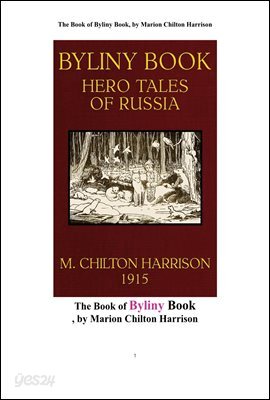러시아의 영웅이야기 빌리니북 .The Book of Byliny Book,Hero Tales of Russia, by Marion Chilton Harrison
Marion Chilton Harrison 저
|
뉴가출판사
|
2021년 11월 9일
저자/출판사 더보기/감추기








